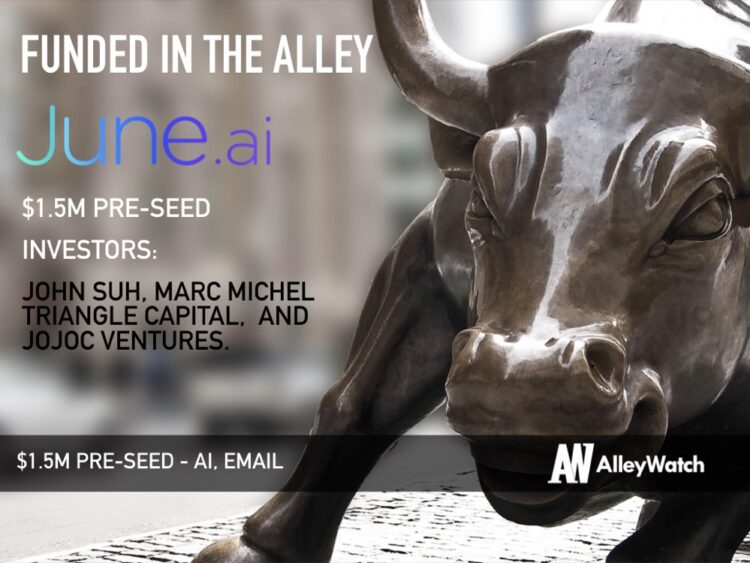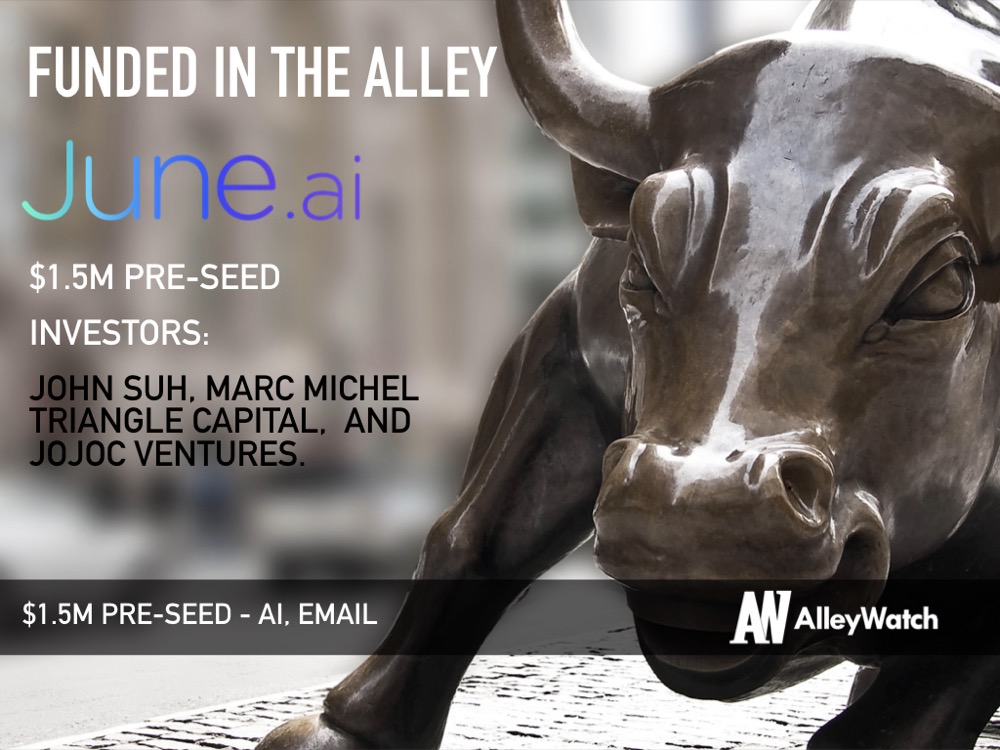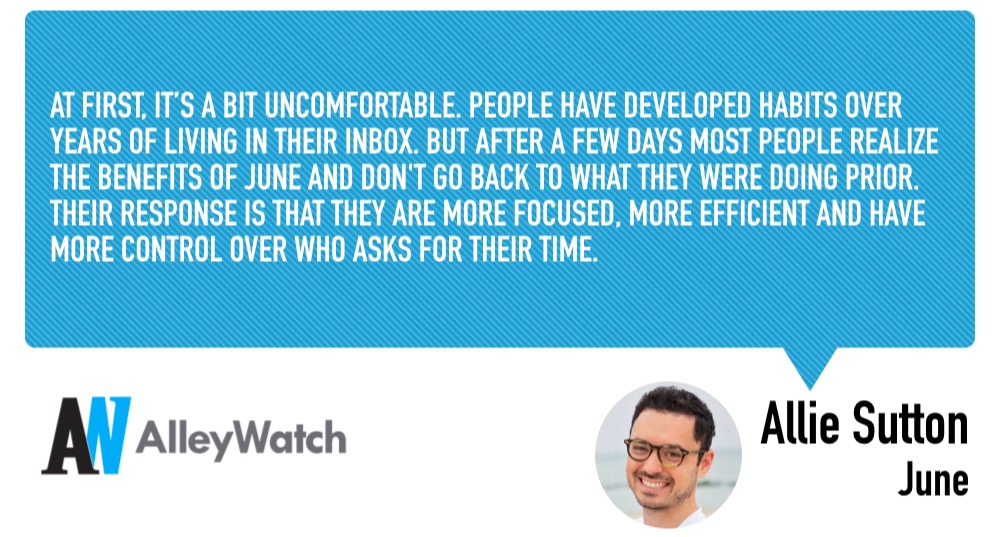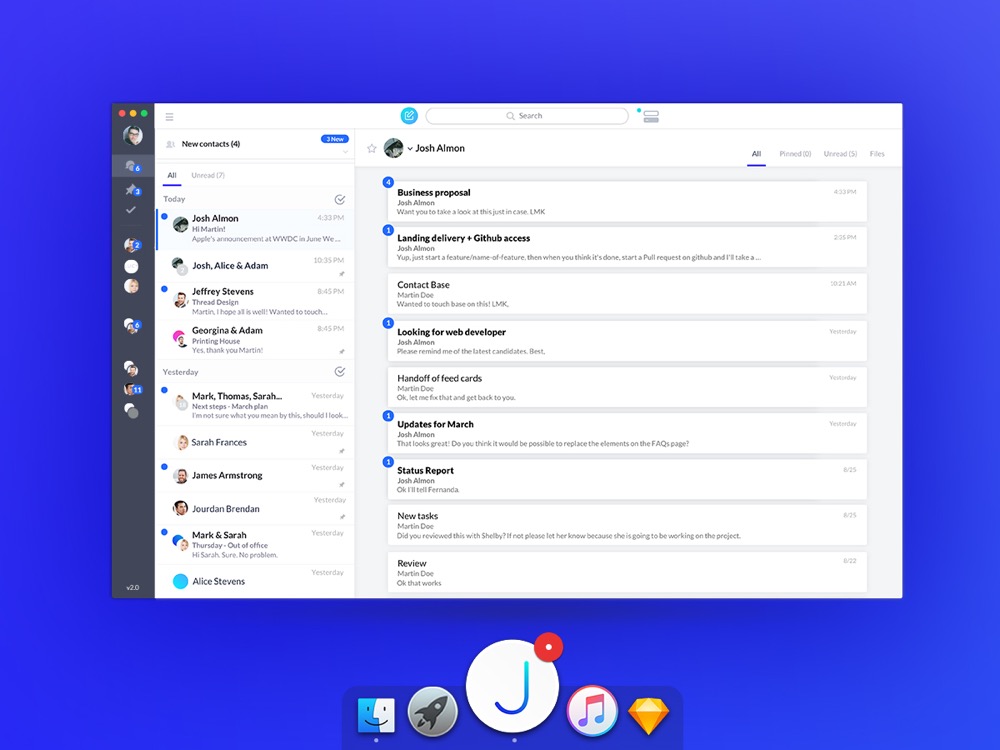What’s the first thing you check when you wake up in the morning and pick up your smartphone? Most likely you check your email right away like billions on the planet. But could there be a better way to engage with your email? There is and it is being developed by the AI-powered digital communications hub June. This platform completely reinvents how people check their email by rebuilding the foundational elements of how email works and how people interact with it. Using AI to separate messages into conversations and put non-conversational messages into a feed, the hub leads to increased productivity by adding relevance to your inbox.
AlleyWatch chatted with CEO Allie Sutton about the company, its new round of funding, and why now is the perfect time for innovation in email.
Who were your investors and how much did you raise?
We’re announcing our $1.5M Pre-seed. Our investors include John Suh, CEO of LegalZoom, Marc Michel, Founder of Runway Ventures, Triangle Capital, JojoC Ventures, and various other angel investors.
Tell us about the product or service that June offers.
June.ai is on a mission to replace email with something way better. June is a digital communication hub that challenges the foundational elements of how email works and replaces your email experience. Connect your existing email accounts and June will create a new world that gives you more control, interactivity, and efficiency.
 What inspired you to start June?
What inspired you to start June?
We started June because we realized email was such a big problem in our day to day lives, and in the lives of so many people across the world. It’s slow, disorganized, full of garbage and it leads to so much stress. Email was invented over 45 years ago as a simple messaging tool from one computer to another – the lack of and need for innovation in the space was glaring.
While built as a single place for messages, now we use email as an online communication hub for all our communication and information. We’re challenging foundational elements of how email works to build a new experience from the ground up. We imagined what a digital hub would be as if email never existed.
How is June different?
Unlike most platforms in the space, at June.ai we aren’t just trying to reinvent email – we’re scrapping it. Instead of single list of messages or an inbox, June’s AI separates your messages into conversations and puts your non-conversational messages into a feed, so you can be more focused throughout the day.
We’ve done away with subject-centric threads, and are instead organizing conversations around people, so you quickly find what you need and get through your messages faster.
Another key difference is the control June gives users over who contacts them. June acts as your personal gatekeeper: you can approve, unsubscribe, or block new people or companies that contact you. While new contacts await your approval, June can auto-respond letting them know you’ve received their message and will get back to them if interested.
How are people reacting to the behavioral change of no longer being constrained to their inboxes?
At first, it’s a bit uncomfortable. People have developed habits over years of living in their inbox. But after a few days most people realize the benefits of June and don’t go back to what they were doing prior. Their response is that they are more focused, more efficient and have more control over who asks for their time.
What market does June target and how big is it?
- 3.8B people use email all over the world, but our early target markets consist of:
- Recent college graduates who have just entered the workforce
- People who are constantly looking to grow by improving their productivity and efficiency
What’s your business model?
At the moment the app is completely free, but we plan on instituting a freemium model down the road.
What was the funding process like?
We had tons of meetings with many different investors. We needed them to really understand our vision for how a communication hub could be if it was built for the way we work today. Our most successful meetings were with the people who knew us best and believed in us.
What are the biggest challenges that you faced while raising capital?
At the time, we were raising a good amount of money on just an idea. We had solid research and a clear approach to the problem, but we didn’t have anything an investor could use or play with. That was challenging.
What factors about your business led your investors to write the check?
I believe investors wrote the check because they believed in us and the problem we are targeting. It was that simple.
What are the milestones you plan to achieve in the next six months?
Launch publicly to showcase June to the world, expand the user base, and start building Android.
What advice can you offer companies in New York that do not have a fresh injection of capital in the bank?
There are lots of investors in NYC. I found it best to run a very deliberate fundraising process to make a list of all the potential investors you want to target and network throughout NYC to get to the investors who have similar beliefs. Other entrepreneurs are usually very willing to help. Attend events and meetups – if you can be helpful to them, they are surely going to be helpful to you.
I found it best to run a very deliberate fundraising process to make a list of all the potential investors you want to target and network throughout NYC to get to the investors who have similar beliefs. Other entrepreneurs are usually very willing to help.
Where do you see the company going now over the near term?
We started June to build the future of communication. In the near term, we want to grow the user base on desktop and mobile platforms but in the future, our goal is to continue to challenge the status quo around communication and how a communication hub should work.
Where is your favorite fall destination in the city?
During fall, my wife and I love to take our kids to Central Park. They love climbing the rocks and watching the small sailboats.






